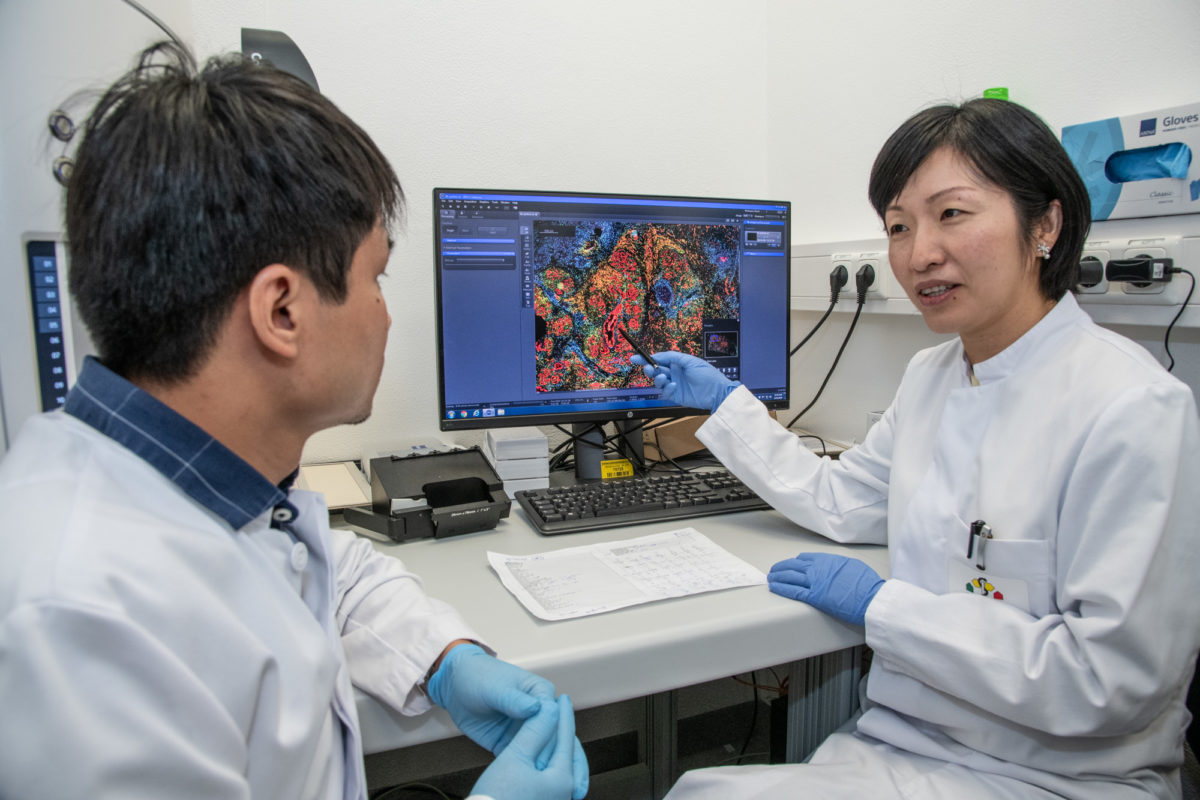
Progranulin fördert die Immunflucht des Pankreaskarzinoms
Unser Team hat mit der Unterstützung vieler Kooperationspartner einen Mechanismus identifiziert, mit dem sich Tumorzellen der Immunkontrolle entziehen können. Hierzu nutzen diese ein sekretorisches Eiweiß, Progranulin (PGRN), welches die Sichtbarkeit der Tumorzellen für Immunzellen durch Unterdrückung der Expression des MHC I Moleküls erniedrigt. Das könnte ein Angriffspunkt für künftige Immunstrategien sein.
Cheung PF, Yang J, Fang R, Borgers A, Krengel K, Stoffel A, Althoff K, Yip CW, Siu EHL, Ng LWC, Lang KS, Cham LB, Engel DR, Soun C, Cima I, Scheffler B, Striefler JK, Sinn M, Bahra M, Pelzer U, Oettle H, Markus P, Smeets EMM, Aarntzen EHJG, Savvatakis K, Liffers ST, Lueong SS, Neander C, Bazarna A, Zhang X, Paschen A, Crawford HC, Chan AWH, Cheung ST, Siveke JT.Nat Commun. 2022 Jan 10;13(1):156.
doi: 10.1038/s41467-021-27088-9.
Immune evasion is indispensable for cancer initiation and progression. Here, we characterize the function of tumor-derived PGRN in promoting immune evasion in primary pancreatic ductal adenocarcinoma (PDAC). Tumor- but not macrophage-derived PGRN is associated with poor overall survival in PDAC. Multiplex immunohistochemistry shows low MHC class I (MHCI) expression and lack of CD8+ T cell infiltration in PGRN-high tumors. Inhibition of PGRN abrogates autophagy-dependent MHCI degradation and restores MHCI expression on PDAC cells. Antibody-based blockade of PGRN in a PDAC mouse model remarkably decelerates tumor initiation and progression.
We developed a new model with tumors expressing LCMV-gp33 as a model antigen. Tumor cells exposed to gp33-TCR transgenic T cells were sensitized upon PGRN blockade to T-cell-mediated cytotoxicity. Our study shows a crucial function of tumor-derived PGRN in regulating immunogenicity of primary PDAC.
(veröffentlicht in Nature Communications)
